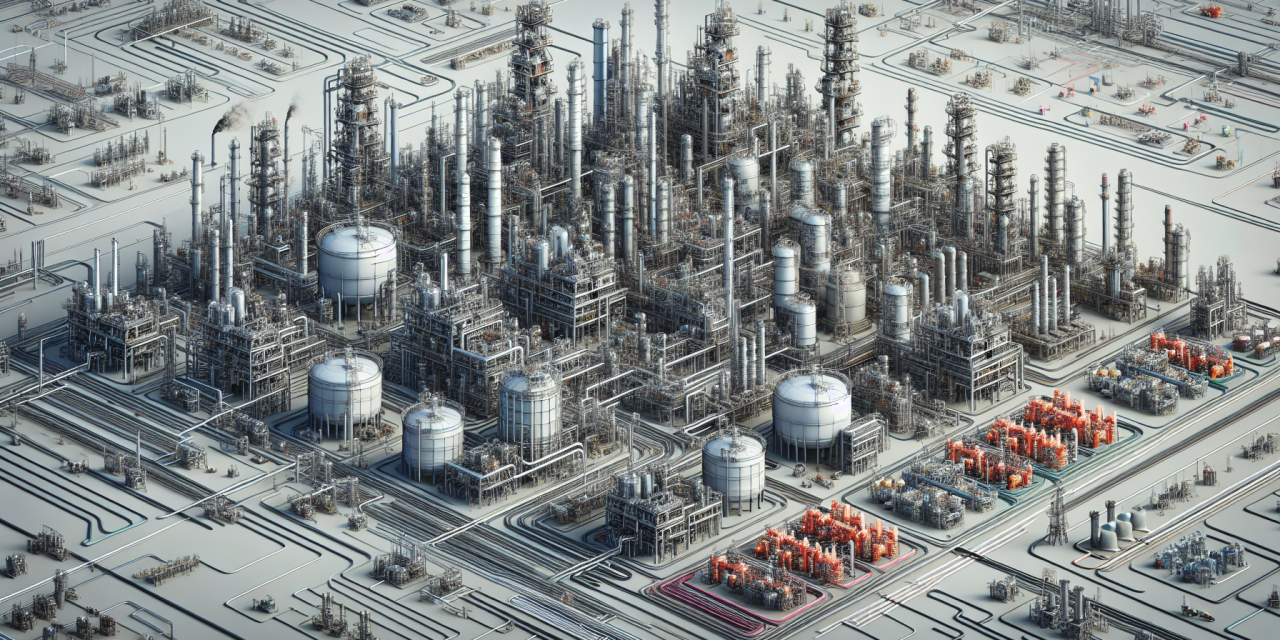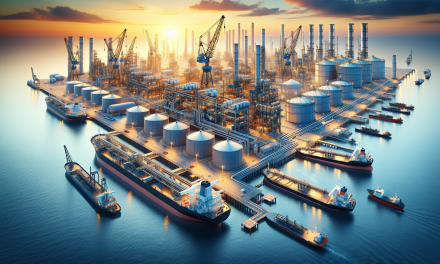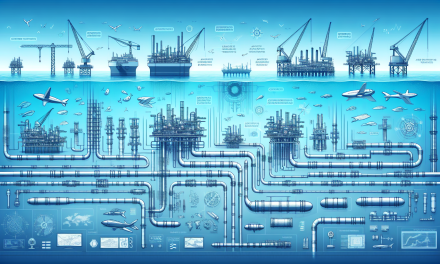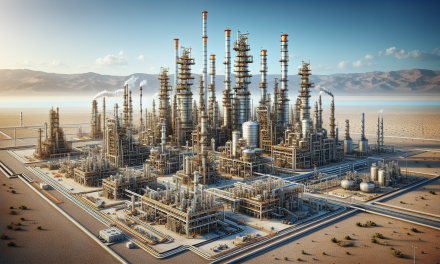Table of Contents
- Introduction
- What is the Chemical and Petrochemicals Industry?
- Importance of the Industry
- Key Components of the Chemical and Petrochemicals Industry
- Processes in the Industry
- Sustainability in the Industry
- Future Trends in the Chemical and Petrochemicals Industry
- Frequently Asked Questions
- Conclusion
Introduction
The chemical and petrochemicals industry plays a crucial role in our daily lives. It provides essential substances used in countless products, from medicines and food to plastics and fuel. However, despite its significance, many non-technical personnel find it challenging to grasp the ins and outs of this intricate field. In this blog post, we will break down the essential aspects of the chemical and petrochemicals industry, making it accessible and comprehensible for everyone.
What is the Chemical and Petrochemicals Industry?
At its core, the chemical and petrochemicals industry transforms raw materials into valuable products through chemical processes. Raw materials, such as crude oil, natural gas, and minerals, serve as the foundation for producing various chemicals. In contrast, petrochemicals specifically originate from petroleum or natural gas. These substances are fundamental in creating a wide array of products that people use daily.
Types of Chemicals Produced
The industry generates two main categories of chemicals: basic chemicals and specialty chemicals. Basic chemicals serve as the building blocks for many products, including ethylene and propylene. Conversely, specialty chemicals are specialized products developed for specific applications, such as dyes, adhesives, and lubricants.
Importance of the Industry
Understanding the importance of the chemical and petrochemicals industry is essential. This sector significantly contributes to global economies, creating jobs and driving innovation. Additionally, it supports other industries, including manufacturing, agriculture, and healthcare, by providing essential materials and products.
Economic Impact
According to recent estimates, the chemical and petrochemicals industry generates billions in revenue annually, supporting millions of jobs worldwide. Moreover, the industry is vital for the supply chain in various sectors, underscoring its economic importance.
Innovation and Research
Innovation drives the industry forward. Companies continually invest in research and development to create new products and improve existing ones. This commitment to innovation not only promotes efficiency but also embraces sustainability.
Key Components of the Chemical and Petrochemicals Industry
Several key components define the chemical and petrochemicals industry. By understanding these elements, non-technical personnel can better appreciate how this industry operates.
Raw Materials
As mentioned earlier, raw materials like crude oil, natural gas, and minerals are foundational. The extraction and refinement of these materials are critical for producing various chemicals.
Processes
The industry employs various processes to convert raw materials into finished products. These processes include distillation, cracking, and polymerization, each playing a vital role in production.
Product Categories
Products created within the chemical and petrochemicals industry can be broadly categorized into several groups, such as:
- Fertilizers
- Plastics
- Pharmaceuticals
- Cosmetics
- Detergents
Processes in the Industry
The processes involved in the chemical and petrochemicals industry are fascinating. Each stage contributes to the overall production of chemicals.
Extraction and Refinement
Firstly, extraction involves obtaining raw materials, primarily through drilling or mining. Next, the refinement process refines these raw materials, making them suitable for chemical processing.
Synthesis and Conversion
Once raw materials are prepared, they undergo synthesis and conversion. In this stage, chemists and engineers combine raw materials through various reactions to create new compounds.
Sustainability in the Industry
As the world increasingly focuses on sustainability, the chemical and petrochemicals industry is also evolving. Companies are embracing greener practices and technologies to reduce their environmental impact.
Alternative Raw Materials
One significant trend involves exploring alternative raw materials, such as bio-based feedstocks. By utilizing renewable resources, the industry aims to minimize reliance on fossil fuels.
Waste Reduction
Additionally, many companies are implementing waste reduction strategies. These can include recycling by-products and finding innovative ways to repurpose waste materials.
Future Trends in the Chemical and Petrochemicals Industry
Looking ahead, several trends are expected to shape the future of the chemical and petrochemicals industry. Understanding these trends will help non-technical personnel stay informed and engaged in the industry’s evolution.
Digital Transformation
Digital technologies are revolutionizing how the industry operates. From data analytics to automation, companies are increasingly leveraging technology to enhance productivity and streamline processes.
Decarbonization Initiatives
As climate change continues to be a pressing global issue, many chemical and petrochemical companies are implementing decarbonization initiatives. This shift not only reflects societal concerns but also opens up new opportunities for innovation.
For those looking to delve deeper into the basics of the petrochemical and chemical industry, consider exploring this Petrochemical & Chemical Industry Basics for Non-Technical Staff. It serves as a great starting point for understanding this complex field.
Frequently Asked Questions
What is the difference between chemicals and petrochemicals?
While both terms relate to substances produced in the industry, chemicals refer to any materials made through chemical processes. In contrast, petrochemicals specifically come from petroleum or natural gas.
How does the chemical industry impact the environment?
The chemical industry can significantly impact the environment, primarily through emissions, waste, and resource consumption. However, many companies are adopting sustainable practices to reduce their ecological footprint.
Are there career opportunities for non-technical personnel in this industry?
Yes, the chemical and petrochemicals industry offers various career pathways for non-technical personnel, from project management and marketing to supply chain and human resources.
Where can I learn more about oil, gas, and energy management?
If you’re interested in expanding your knowledge in oil, gas, and energy management, consider checking out these articles:
Master Your Future: A Comprehensive Guide to the Mini Master Certificate in Oil, Gas, and Energy Management,
Enhancing Skills in Global Oil and Gas Management: Your Pathway to Success,
Unlocking the Secrets of Global Upstream Oil & Gas Operations,
Understanding Petroleum Refining and Petrochemicals: A Guide for Non-Technical Personnel,
Navigating the Essentials of Offshore Pipeline Engineering: A Comprehensive Guide.
Conclusion
In conclusion, the chemical and petrochemicals industry is a vast and essential sector influencing everyday life. By understanding its key components, processes, and future trends, non-technical personnel can appreciate its significance and contribution to society. As the industry embraces innovation and sustainability, staying informed is more critical than ever. Ready to explore more about this captivating field? Dive into useful resources and enhance your knowledge today!





